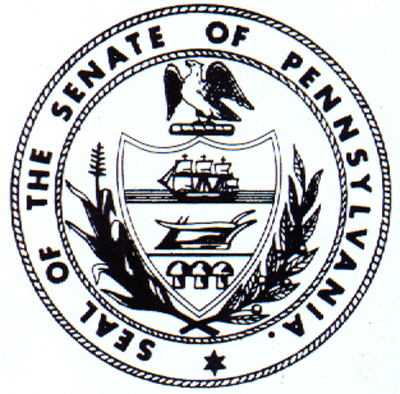|
|
||||||
FUMO RESPONDS TO GOVERNOR ON DRPA ISSUES HARRISBURG, January 5, 2005 – State Senator Vince Fumo (D-Philadelphia) sent the attached letter to Governor Ed Rendell today regarding the possibility of dredging the Delaware River, and the legality of dissolving the Delaware River Port Authority (DRPA.) # # # attachment (On Senate Stationary) January 5, 2006 The Honorable Edward G. Rendell Dear Ed: I am responding to your letter of January 3, 2006, in which you continue to advocate a course of action involving the Commonwealth of Pennsylvania’s "repeal" of the enabling statutory authority that gave rise to the Delaware River Port Authority Compact if the state of New Jersey does not support the Delaware River dredging project. Your tactic of using this idle threat is not only unproductive in seeking a resolution to this impasse, but reflects a gross misunderstanding of the legal issues related to the DRPA Compact. Prior to addressing the legal premise of your threat to "repeal" the state enabling authority of the DRPA, I wish to reiterate my support for the policy position of seeking the DRPA’s financial commitment to the dredging project. I never said I disagreed with the reasons to pursue dredging that you listed in your letter, only that the issue is not clear cut. I already understand the advantages to dredging, but I also recognize that those on the other side of the issue make valid arguments. I agree with the claim that deepening the river channel is desirable for ensuring the competitive viability of the Ports of Philadelphia and Camden. The compelling merits of the dredging project, however, are insufficient justification for petulantly threatening to "dissolve" the DRPA. My purpose in sending my December 29 letter to you was to urge a calm, cooperative resolution to this dispute. Again, I make a plea for a less confrontational approach. Now to the legal matter at issue: The DRPA is the creation of a "compact" between the Commonwealth of Pennsylvania and the state of New Jersey. Inherently akin to a contract, the New Jersey and Pennsylvania legislatures enacted reciprocal statutes in 1931 establishing the DRPA and explicitly agreeing to the terms and conditions of the joint state compact. Pursuant to the Compact Clause of the United States Constitution, Congressional consent was necessary to effectuate the terms of the DRPA contract. Congress consented to the terms in 1932, and thereafter consented to amendments in 1952 and 1992. The notion that the Pennsylvania legislature has the legal authority simply to "repeal" the DRPA’s enabling statute and thereby unilaterally "dissolve" the existence of the DRPA is wrong. The terms of the DRPA Compact are clear – Article IV(a) grants to the DRPA "perpetual existence." The DRPA is not an agency of a single state, but rather is a corporate instrumentality of both creator states. As a separate corporate instrumentality, the DRPA is the owner of real property – including transportation facilities, bridges and land in both states. The unilateral repeal of the Commonwealth’s enabling authority would have no legal effect upon the ownership of these assets – they would remain with the DRPA. Additionally, the terms of the DRPA compact explicitly prohibit either the Commonwealth of Pennsylvania or the state of New Jersey from taking any action that would diminish the power of the DRPA to own, operate or control any of the assets of the Commission or impair its ability to collect or levy tolls or rents. These were terms and conditions to which the Commonwealth and New Jersey agreed, and which have been consented to by the United States Congress. No ex post facto repeal of the Pennsylvania enabling authority will legally diminish the authority of the DRPA or the Commonwealth’s legal obligations under the DRPA Compact. The suggestion that the DRPA may be simply dissolved and replaced with "another local sponsor" unilaterally, without the consent of the State of New Jersey or Congress is wrong. Furthermore, legal obstacles aside, I find it difficult to see the practical benefit to Pennsylvania of dissolving the DRPA. Doing so in order to proceed with dredging would result in Pennsylvania footing the entire bill, and dealing with the disposal of all of the toxic waste. If you are determined to have Pennsylvania go it alone despite those costly disadvantages (which I do not advocate), you already have an instrument to do so in the PRPA. Thus, I fail to understand why proceeding with dredging on our own is a rationale for dissolving the DRPA. In the meantime, our present course of action is costing all toll payers, including Pennsylvanians, $750,000 per month or $25,000 per day that we will never get back and is totally wasted, to no one's benefit. I reiterate that I continue to stand ready to help in any reasonable way to calm this situation down and try to reach an honorable and amicable settlement of the parties on both sides of the river, which in the end would benefit the entire Delaware Valley Region. Sincerely yours, (signed) VINCENT J. FUMO cc: Commissioner Robert W. Bogle 1 -- By definition, a "compact" is a contractual agreement between sovereign bodies. Black’s Law Dictionary, 351 (4th Ed. 1957). 2 -- See, Nardi v. Delaware River Port Authority, 88 Pa.Cmwlth. 558, 490 A.2d 949 (1985) (Commonwealth Court determined that neither New Jersey nor Pennsylvania may impose additional duties, powers or responsibilities unilaterally upon the DRPA); see, also, Pievsky v. Ridge, 98 F.3d 730 (3rd Cir. C.A. Pa. 1996) cert. denied, 519 U.S. 1150, 117 S.Ct. 1085, 137 L.Ed.2d 219. 3 -- Article IX of the Compact provides: ". . . the Commonwealth and the said State of New Jersey will not diminish or impair the power of the commission to own, operate or control said properties and facilities, or to establish, levy and collect tolls, rents, rates and other charges in connection with such properties or facilities." 35 P.S. § 3503
|


